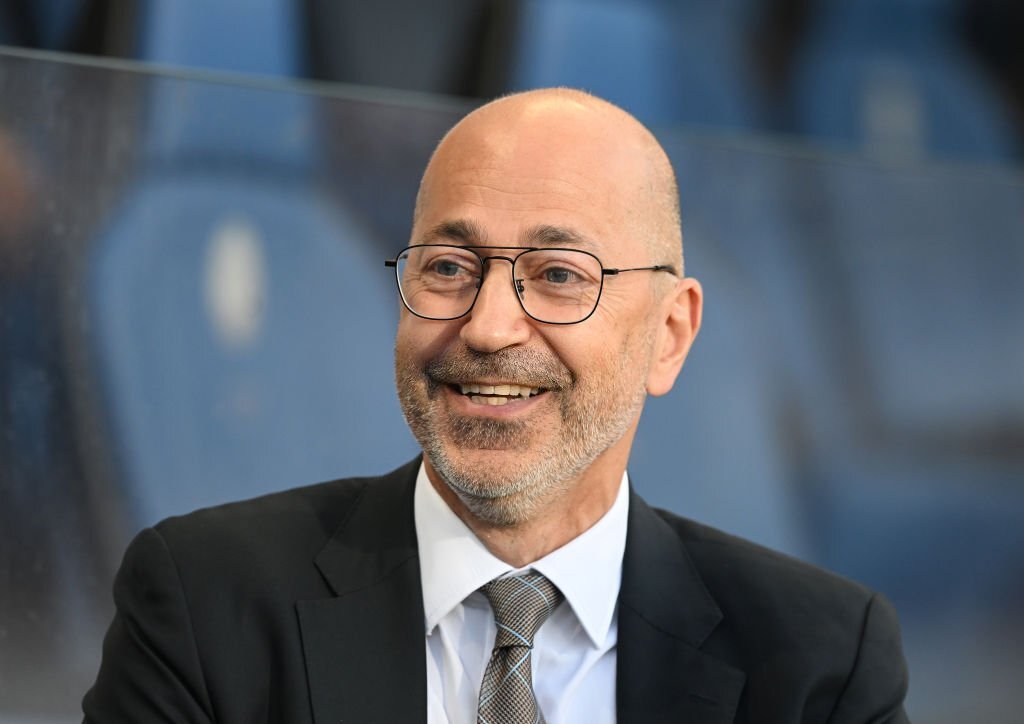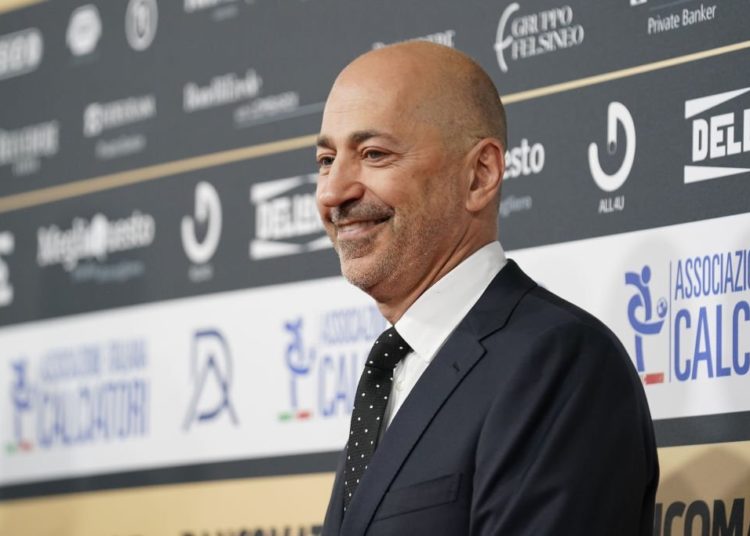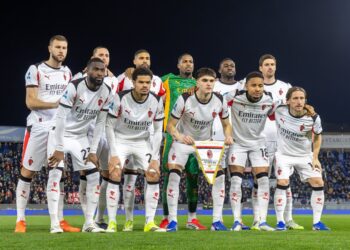AC Milan's CEO, Ivan Gazidis, granted an interview to ESPN microphones. The South African spoke about his role at the club and how he accepted the job offer from Elliott:
"It wasn't the comfortable or low-pressure option. "At the same time, I believed in the possibility of it. Milan is one of the great football clubs in the world and I thought we could bring something new into the Italian environment."
He continued:
"My initial response was to say there might be other candidates more familiar with Italy but Elliott considered that and came back. As we both thought about it more, we decided we could take it on together."
On the expensive player contracts, like Higuain, Donnarumma and others:
"There were a lot of contracts like that, almost too many to name, expensive players like Bonucci for example. They signed Gianluigi Donnarumma, an excellent goalkeeper, but to a huge contract in order to keep him. Go through the team, the contracts were out of whack with performance. There were probably 10 different examples of players who fall into that category. And players, when they are overpaid relative to their performance, are really difficult to get out."
Gazidis on the wage bill:
"We're actually just getting to the end of unpicking the last ones this season to make the wage bill more efficient. But when you are able to get those players out, you need someone to play. The only way to bring new ones in is to spend money and then the question is how to spend effectively and efficiently."
On the club's strategy to invest in youth:
"We faced a lot of scepticism about the policy of signing young players, especially in Milan. Italy, in general, I think is sceptical about giving young players a chance, Milan in particular because of the pressure of the crowd and the San Siro environment has a reputation that young players can get crushed there."
On the summer when Milan signed the likes of Rafael Leao, Ismael Bennacer and Rade Krunic:
"Those players we signed that summer are still core elements of the team today. Very often, what I see at football clubs is the scouting and the analytics are at odds and that creates an issue inside the club. We managed to line them up extremely well together. Analytics are facts. Saying you don't believe in analytics is like saying you don't believe in facts. There are explanations behind the facts you need to look at. Facts don't give you the answers, but they can ask a lot of very relevant questions. It isn't so much about concept as it is about execution."
On signing players thanks to work of Paolo Maldini, Frederic Massara and chief of scouts Geoffrey Moncada:
"In the recruitment process, Paolo is fundamental, speaking to each of these players to understand the way they think and what is motivating them. We call him our point of reference. Paolo is speaking to the agent as an initial point of contact. The next conversation is directly between Paolo and the player, with Ricky as well. Immediately, he is developing a relationship in the recruitment phase because he knows the insecurities that young players have. He's been through it all himself, he knows their concerns. Theo is a good example. He'd been in the Real Madrid system but had been out on loan and they were prepared to let him go. Paolo met him in Ibiza where he was on holiday in the summer. They sat and had a coffee or lunch together and a long conversation where they formed a bond that still exists today."
Gazidis added:
"Paolo really understood that Theo had development to do as a footballer, but also as a young man, and Paolo took him under his wing. You still see it today. Paolo goes to the training ground virtually every single day. He's not intrusive into the coach's territory but always has a word for a player for what they are going through, what happened in the last match. This morning with Theo, the two say hello to each other and there's a big hug. Theo looks at Paolo almost as a second father. Paolo has that relationship with number of the players."
On Milan's 1-year ban from UEFA for the 2019-20 season:
"I knew coming in this was going to have to arc and part of it would be a low point. That probably was the lowest point, having to take that ban, being in a situation where almost everything had to be turned around, every aspect of the club. To take a ban for a club whose reputation is built on Champions League football was a very difficult thing to accept. But Milan had never been thought of as a business before. Clubs are social and cultural institutions but if you don't have a solid business plan behind it, the wheels can come off the wagon."
On the negative sporting results at first:
"Maybe we were at our lowest point when Covid hit. Inside the club, we were beginning to see light at the end of the tunnel. But outside the club, the team had a coaching appointment that had not worked in Giampaolo and we had to make a change. There was a lot of pressure on us going into January and February and then lockdown happened. We were beginning to see some green shoots, we believed we were doing the right things. But actually, something grew within the group during that lockdown period, even though they weren't physically together. They somehow just bonded and Stefano really got to know them well. "A little bit like Paolo, he wants to understand the players as people and he cares about them. That makes them ready to run through a wall for him. [In lockdown] We were not under that pressure [of playing] every three days. They were able to pause and connect with each other and the relationships formed during that time have carried forward and developed. We came out of lockdown and the performances just grew and grew."
On Simon Kjaer and Zlatan Ibrahimovic, Gazidis said the following:
"Both of them contributed a lot. They came in and provided broad shoulders for the young players. Ibra never accepts less than 110% from anybody at any time. Ibra was extremely demanding on everybody. We actually tried to bring him in a year earlier, but Ibra felt it wasn't the right time. He was playing with the LA Galaxy and wanted one more year there. With Zlatan, he's obviously a very powerful personality. If he came into the wrong environment, that could lead to friction. I think our environment was the perfect challenge for him, one of the biggest in his career. Could he lead this group to a Scudetto? He really embraced that."
On signing Rafael Leao:
"Rafa didn't have an easy time here. He wasn't playing and when he did, his performances were up and down. He needed a little bit of time. He got that time and support. We didn't deviate from our plan very much. And where we spent bigger money, we didn't deviate from it at all. We had to have green lights from scouting, analytics, Maldini and me on the finances. The finances had to get into order and spending required Elliott to put more money into the club in the short-term and to have the faith in this group of people to make the right decision."
Gazidis on Milan's financial growth:
"The fans sing 'Pioli's on fire' but our commercial department has been on fire. There are four pillars to our strategy. The first was fix the on-field performance. The second was enhance the capability of the organisation -- getting the right management. Third was to drive the commercial revenues to a new level by bringing in good processes and the fourth is the stadium. That fourth one has been challenging at times."
On the new stadium designs proposed:
"We have a great, privately-funded project that I spent a huge amount of time on in my first year which has really got a bit bogged down in Italian politics and bureaucracy," Gazidis says. "But now, there is a very big light at the end of the tunnel. We already have approval on the stadium, there are a couple of steps they are going through with a public debate. I'm very optimistic that stadium project will get underway next year with all approvals."
It is the next step in Milan's evolution and the plans are a significant reason why RedBird Capital Partners moved to acquire the club for €1.2bn.
"The club does not have to be invented. Pride comes from on field performances but also from values. We spent a lot of time making sure we were purpose led and authentic to values. We've done a lot of work on anti-racism, where we have been absolutely the leaders in speaking up about that. We're investing in our women's team. That would be an easy cut to make but we've actually doubled down on it. Milan is one of the giants of the game. It should be spoken in the same breath as Real Madrid. It just needs to be breathed back to life. I think we are doing that, but we are only at the end of the beginning. The next phase of growth will be really important. I really believe the first responsibility of a chief executive is to try to make yourself replaceable," he says. "This is a really robust organisation with great management at the senior level. All the senior managers here were brought in new, and they are top class people. I know there will always be a focus on individuals. If the club is in a better position now than it was four years ago, it is entirely down to the efforts of a lot of people: senior management team, staff, players and coaching staff. That is unchanged. The new ownership is involved because it likes the direction of the football club. It wants to take it further."
Gazidis again:
"The huge spending we are seeing in football is creating a lot of tension in the system. It is making football less competitive, although it is the best football we have ever seen. It is a wonderful spectacle but there are fewer and fewer teams who are able financially to compete at that level. Obviously, the growth of the Premier League means it is the epicentre of that. The spending at PSG has also introduced another element and outside the Premier League, Real Madrid, Barca and Bayern [Munich] will always be there. For Italian football, it has fallen behind. The one club in the last decade who has been able to be competitive because it invested in a new stadium and did things well is Juventus. But if football only becomes about spending and that's the only metric -- there's so much pressure to spend it sometimes feels like that's the thing that's most admired -- I find that disheartening. There needs to be a place for ideas and not just money. There needs to be a place for dreaming and new stories. We're struggling to find that. The Super League was a bad formulation but it is an expression of this tension between clubs that have the backing that means they can do just extraordinary things and a less and less competitive environment in Europe. The Premier League is the Super League and the rest of Europe is trying to find a way to have a vibrant future."
"I've been advocating for closing the gap between Champions League and Europa League revenues for 15 years. That should be reduced. What goes hand in hand with that is effective cost control. FFP is the first attempt. It has been somewhat effective, actually, across most of the game. But it hasn't controlled some of the extreme spending."
Gazidis on the new stadium project again:
"Once you have a shining example like that, other clubs have to follow. It will regenerate the Italian football landscape and kick it into action. This country is a sleeping giant. The football clubs here are enormous because of the history, the culture they represent. Italian football has been through a hard time but I'm absolutely convinced 10 years from now. it'll be thriving, playing in modern stadiums with some of the biggest club names, best style of play, most passionate fans in the world. What we do will have an impact not just on Milan the club, not just on Milano the city, but on Italy the country."
















